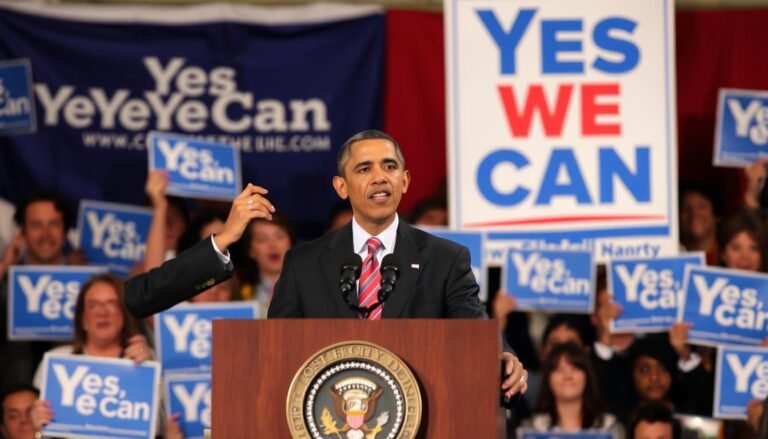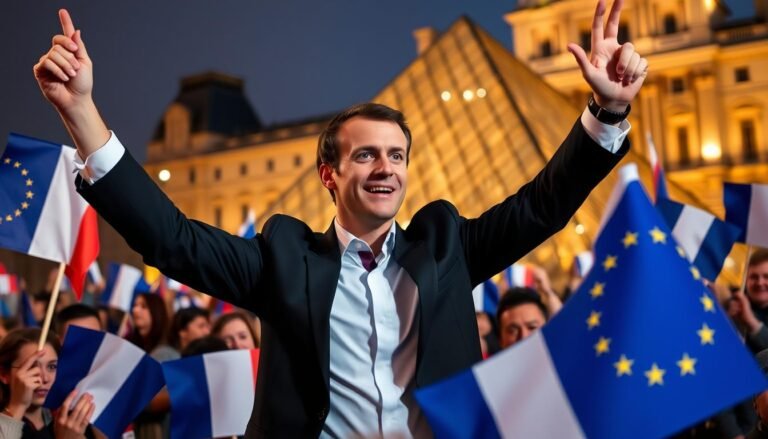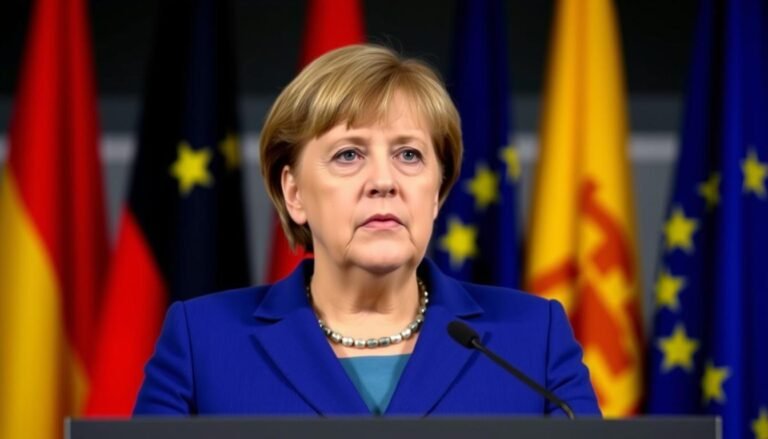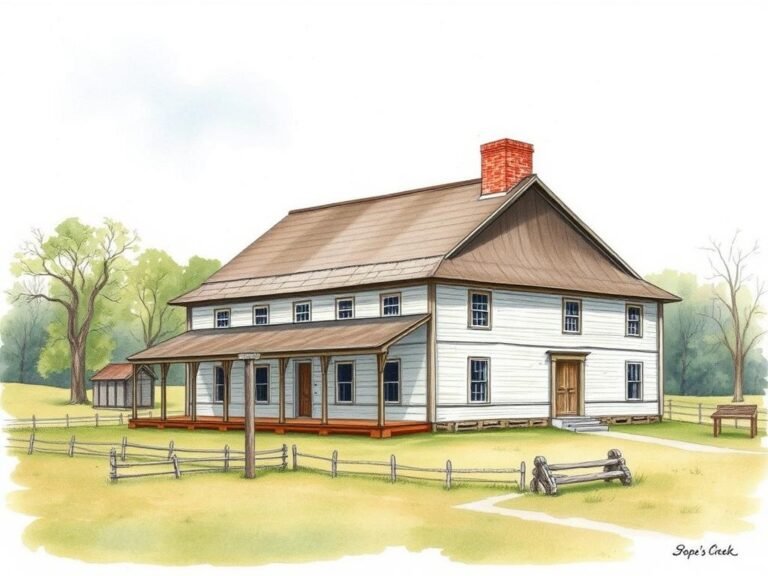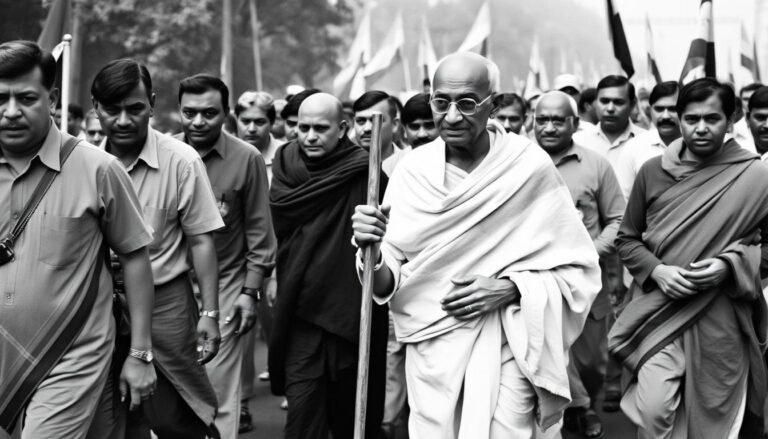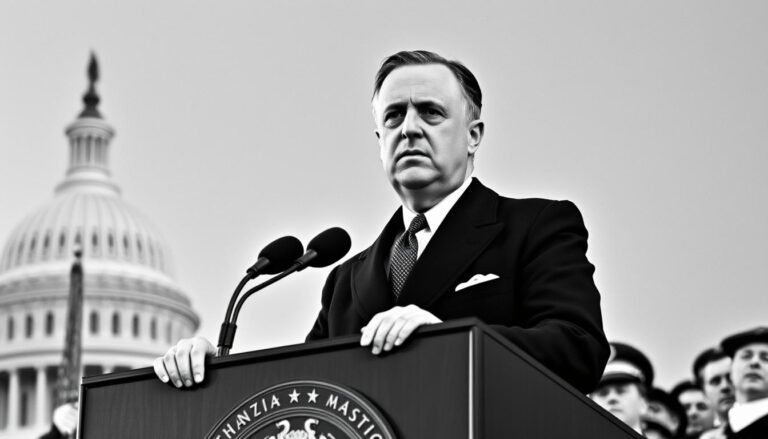Volodymyr Zelenskyy: From Comedian to Wartime Leader
Three years before Russian tanks rolled across Ukraine’s borders, Volodymyr Zelenskyy was still performing comedy on stage and playing a fictional president on television. Today, he stands as the embodiment of Ukrainian resistance, addressing world parliaments and rallying global support against one of history’s most significant geopolitical aggressions. This unprecedented transformation from entertainer to wartime commander-in-chief represents one of the most remarkable political journeys of our time.
As missiles fell on Kyiv in February 2022, the world watched as the former comedian refused evacuation offers with his now-famous words: “I need ammunition, not a ride.” That defiant statement marked the moment when Zelenskyy transcended his past as an entertainer and emerged as the voice of a nation fighting for its survival. This article explores how Zelenskyy’s unconventional background shaped his leadership style and how the comedian became the commander that Ukraine needed in its darkest hour.
The Making of a Comedian: Zelenskyy’s Entertainment Career
Born in 1978 in Kryvyi Rih, a Russian-speaking industrial city in central Ukraine, Volodymyr Zelenskyy’s path to leadership began far from politics. After earning a law degree from the Kryvyi Rih Institute of Economics, he chose to pursue his passion for entertainment rather than legal practice. His comedic talents emerged early when he joined the popular comedy competition KVN at age 17, eventually leading his team “Zaporizhzhia-Kryvyi Rih-Transit” to victory in 1997.
That same year, Zelenskyy co-founded Kvartal 95, the production company that would become the cornerstone of his entertainment career. The company produced films, cartoons, and television shows that made Zelenskyy a household name throughout Ukraine and much of the post-Soviet space. His natural charisma and ability to connect with audiences through humor established him as one of Ukraine’s most beloved entertainers.
Servant of the People: When Fiction Foreshadowed Reality

In 2015, Zelenskyy’s career took a prophetic turn when he began starring in “Servant of the People,” a satirical television series that would eerily predict his future. In the show, Zelenskyy played Vasyl Holoborodko, a high school history teacher who unexpectedly becomes Ukraine’s president after a video of his anti-corruption rant goes viral. The series resonated deeply with Ukrainians frustrated by endemic corruption and ineffective governance.
The show’s premise—an ordinary citizen becoming president to fight corruption—struck a chord with viewers across Ukraine. For three seasons, Zelenskyy portrayed an honest leader battling entrenched oligarchs and a broken system. The series became more than entertainment; it articulated the aspirations of many Ukrainians for a more transparent and accountable government.
“You don’t need experience to be president. You just need to be a decent human being.”
This fictional portrayal would later blur with reality in ways that neither Zelenskyy nor his audience could have anticipated. The show’s popularity reflected a deep yearning for political change in Ukraine—a sentiment that Zelenskyy would eventually channel into a real-world political movement.
Experience Zelenskyy’s Acting Career
Watch episodes of “Servant of the People” to understand how Zelenskyy’s fictional presidency foreshadowed his real-life leadership.
From Screen to Reality: Zelenskyy’s Political Ascension

On December 31, 2018, as Ukrainians prepared to watch then-President Petro Poroshenko’s New Year’s address, they were surprised by an unexpected announcement. On the 1+1 TV channel, Volodymyr Zelenskyy declared his candidacy for the presidency of Ukraine. What initially seemed like another comedy sketch quickly proved to be serious. The line between fiction and reality had begun to blur.
The Unconventional Campaign
Zelenskyy’s presidential campaign broke all the traditional rules of Ukrainian politics. Instead of giving policy speeches or participating in traditional debates until the very end of the campaign, he continued performing in comedy shows across the country. His campaign was largely conducted through social media, particularly Instagram and YouTube, where he directly engaged with voters in his characteristic informal style.
What Zelenskyy lacked in political experience, he made up for with authenticity and communication skills. His campaign focused on simple, resonant messages: fighting corruption, ending the war in eastern Ukraine, and bringing fresh faces to government. He positioned himself as an anti-establishment figure, untainted by the political scandals that had plagued Ukraine’s leadership for decades.

Critics dismissed him as a political novice, a puppet of oligarch Ihor Kolomoisky (owner of the 1+1 channel), or simply a joke candidate. Yet his outsider status became his greatest asset in a country weary of traditional politicians. As political scientist Volodymyr Kulyk noted, Zelenskyy practiced “inclusionary populism,” claiming to defend “the people” against “the elite” while defining “the people” in a way that included all ethnic, linguistic, and religious groups.
The Landslide Victory
On April 21, 2019, Zelenskyy achieved what many had thought impossible. He won the presidential runoff with 73.22% of the vote—the highest percentage in Ukraine’s history as an independent nation. His victory over incumbent Petro Poroshenko represented a profound rejection of the political establishment and a gamble on a completely untested leader.
In his inauguration speech on May 20, 2019, Zelenskyy declared: “I do not want my picture in your offices, for the President is not an icon, an idol, or a portrait. Hang your kids’ photos instead, and look at them each time you are making a decision.” This statement encapsulated his populist approach and desire to break with the cult of personality that had characterized Ukrainian politics.
Early Presidency and Challenges

Zelenskyy’s early presidency was marked by ambitious reform efforts and significant challenges. After his inauguration, he immediately dissolved parliament and called for snap elections, which his newly formed “Servant of the People” party won with an unprecedented parliamentary majority in July 2019. This gave him extraordinary power to implement his agenda.
His administration initially focused on anti-corruption measures, judicial reform, and economic liberalization. Significant achievements included lifting parliamentary immunity, passing land reform legislation, and initiating digitalization of government services. However, progress was slower than many supporters had hoped, and critics pointed to continued influence of oligarchs in Ukrainian politics.
Early Achievements
- Removal of parliamentary immunity
- Passage of historic land reform
- Digitalization of government services
- Banking law preventing return of nationalized banks to oligarchs
- Improved relations with Western partners
Persistent Challenges
- Stalled anti-corruption reforms
- Continued oligarchic influence
- Unresolved conflict in eastern Ukraine
- Economic difficulties exacerbated by COVID-19
- Questions about judicial independence
By late 2021, Zelenskyy’s approval ratings had fallen to around 25%, down from 73% at his election. The COVID-19 pandemic, continued corruption scandals, and lack of progress in peace negotiations with Russia had diminished his popular support. The Pandora Papers revelations in October 2021, which showed Zelenskyy and his associates owned offshore companies, further damaged his anti-corruption credentials.
Few could have predicted that within months, these domestic political challenges would be overshadowed by an existential threat to Ukraine’s very existence—and that Zelenskyy would rise to meet that threat in ways that would astonish the world.
Comedian to Commander: Zelenskyy’s Wartime Transformation

In the pre-dawn hours of February 24, 2022, as Russian missiles struck targets across Ukraine and tanks crossed the border, Volodymyr Zelenskyy faced the defining moment of his presidency. The comedian-turned-politician was suddenly thrust into the role of wartime leader, facing the largest conventional military attack in Europe since World War II.
In the hours before the invasion, Zelenskyy made a last-minute appeal for peace, addressing the Russian people directly in their language: “The people of Ukraine want peace. The government of Ukraine wants peace. We want it and we make it. We do our best.” His words went unheeded as Russian forces launched their multi-pronged attack.
The Decision That Defined a Leader
As Russian forces advanced toward Kyiv with the apparent aim of decapitating Ukraine’s government, Zelenskyy faced a critical choice. According to U.S. officials, he was offered evacuation to safety outside Ukraine. His response became instantly legendary: “I need ammunition, not a ride.”
“The fight is here. I need ammunition, not a ride.”
This statement, delivered as Russian forces closed in on Kyiv, transformed Zelenskyy’s image overnight from a struggling politician to a symbol of national resistance.
The decision to remain in Kyiv, despite the grave personal danger, earned Zelenskyy immediate respect both at home and abroad. When rumors spread that he had fled, Zelenskyy posted a video from the streets of Kyiv with his key advisers, saying: “We are all here. Our soldiers are here. The citizens of our country are here. We are all here protecting our independence, our country, and it will stay this way.”
Communication as a Weapon

As a former entertainer, Zelenskyy understood the power of communication better than most political leaders. He leveraged this skill masterfully during the war, using social media and video addresses to rally Ukrainians, appeal to international audiences, and counter Russian propaganda.
His daily video addresses, delivered in his now-trademark olive green t-shirt, became a lifeline for Ukrainians seeking reassurance that their government remained functioning. These videos, often shot on a smartphone in recognizable Kyiv locations, projected authenticity and defiance. Harvard Political Review noted that “Zelenskyy has harnessed the power of social media to become history’s first truly online wartime leader.”
Zelenskyy’s addresses to foreign parliaments demonstrated his remarkable ability to tailor messages to specific audiences. When addressing the British Parliament, he echoed Winston Churchill: “We will fight in the forests, in the fields, on the shores, in the streets.” To the U.S. Congress, he invoked Pearl Harbor and 9/11, asking Americans to remember “how it feels when terrorists attack you.” To the German Bundestag, he referenced the Berlin Wall, challenging Germany to “tear down this wall” of inaction.
Strategic Leadership Under Fire

Beyond his communication skills, Zelenskyy demonstrated unexpected strategic acumen. He quickly assembled an effective wartime cabinet, maintained civilian control of the military, and made critical decisions about defense priorities. His leadership style combined centralized decision-making with delegation to military professionals like Commander-in-Chief Valerii Zaluzhnyi.
Zelenskyy’s diplomatic efforts proved equally important. He successfully lobbied Western nations for increasingly sophisticated weapons systems, from anti-tank missiles in the war’s early days to advanced air defense systems and eventually tanks and F-16 fighter jets. His persistent appeals for support helped maintain the coalition of nations backing Ukraine despite economic pressures and war fatigue.
| Leadership Dimension | Pre-War Zelenskyy | Wartime Zelenskyy |
| Communication Style | Informal, humorous, sometimes inconsistent | Direct, emotional, strategically focused |
| Decision-Making | Sometimes indecisive, influenced by advisers | Decisive, willing to make difficult choices |
| International Relations | Limited diplomatic experience, mixed results | Effective global advocate, built strong alliances |
| Public Image | Politician struggling with reform promises | Symbol of resistance and democratic values |
| Crisis Management | Uneven response to COVID-19 pandemic | Effective mobilization of national resources |
Perhaps most importantly, Zelenskyy articulated a clear vision of what Ukrainians were fighting for: not just territorial integrity, but European values and democratic freedoms. This moral clarity helped sustain national morale through the darkest periods of the war and resonated with international supporters.
Watch Zelenskyy’s Historic Speeches
Experience the powerful addresses that rallied global support for Ukraine during its darkest hours.
The Evolution of Zelenskyy’s Public Image

From Declining Popularity to National Hero
The Russian invasion dramatically reversed Zelenskyy’s political fortunes. By late 2021, his approval ratings had fallen to around 25%, with many Ukrainians disappointed by the slow pace of reforms and continued corruption. The Pandora Papers revelations had further damaged his image as an anti-corruption crusader.
Within days of the invasion, however, his approval ratings soared to over 90%, according to multiple polls. A survey by Rating Group in March 2022 found that 93% of Ukrainians approved of his leadership during the war—an unprecedented level of support in Ukraine’s fractious political landscape. Even in traditionally Russian-speaking eastern regions that had been skeptical of his presidency, support for Zelenskyy surged.

This transformation reflected both Zelenskyy’s effective wartime leadership and the rallying effect that external threats typically have on national unity. As political analyst Volodymyr Fesenko noted, “The war revealed Zelenskyy’s strongest qualities—courage, determination, and communication skills—while rendering his previous weaknesses less relevant in the face of existential threat.”
Global Media Portrayal

International media coverage of Zelenskyy underwent an equally dramatic transformation. Before the war, when he appeared in Western media at all, it was often in the context of the Trump impeachment scandal or as an inexperienced leader struggling with reforms. After February 2022, he became a global icon of resistance and democratic values.
Time magazine named him Person of the Year for 2022, calling him “the spirit of Ukraine” and praising his “success as a wartime leader.” The Financial Times also named him Person of the Year, with its editors writing that he “embodies the resilience of his people and has become a standard bearer for liberal democracy.” Comparisons to Winston Churchill became commonplace in Western media.
This international acclaim translated into tangible support for Ukraine, as Zelenskyy’s personal appeal helped maintain Western military and financial assistance despite economic pressures and competing global crises. His background in entertainment, once seen as a liability, became recognized as a source of his communicative power.
Criticisms and Controversies

Despite his wartime popularity, Zelenskyy has not been immune to criticism. Some military analysts have questioned specific strategic decisions, while civil liberties advocates have expressed concerns about the suspension of opposition political parties with alleged Russian ties and the consolidation of national television channels under martial law.
Critics from Ukraine’s right wing have sometimes accused him of being too willing to negotiate with Russia, while some international observers have questioned whether his requests for Western weapons risk broader escalation. The extension of martial law and postponement of elections have raised questions about democratic processes during wartime.
Praised Aspects of Leadership
- Personal courage in remaining in Kyiv
- Effective communication with Ukrainians and international audiences
- Success in rallying Western support
- Ability to articulate Ukraine’s democratic values
- Adaptability to wartime demands
Criticized Aspects of Leadership
- Consolidation of media under martial law
- Suspension of some opposition parties
- Certain military strategic decisions
- Extension of martial law and postponement of elections
- Pre-war corruption issues not fully addressed
Zelenskyy has generally responded to these criticisms by emphasizing the existential nature of the threat facing Ukraine and the necessity of national unity. “Freedom must be armed better than tyranny,” he told the U.S. Congress in December 2022, articulating his view that defending Ukraine’s democracy sometimes requires extraordinary measures.
As the war has continued, Zelenskyy has had to balance maintaining national morale with honest assessments of Ukraine’s challenges. His communication style has evolved from the defiant optimism of the war’s early days to a more measured acknowledgment of the difficulties ahead, while still maintaining his core message of eventual Ukrainian victory.
Conclusion: The Comedian Who Became a Commander

Volodymyr Zelenskyy’s transformation from comedian to commander represents one of history’s most remarkable political journeys. His evolution challenges conventional wisdom about the backgrounds and experiences that prepare leaders for crisis. In many ways, his entertainment career—dismissed by critics as a liability—provided him with the precise skills needed for wartime leadership: communication, authenticity, and an intuitive understanding of narrative.
The comedian who once played a president on television has now redefined what presidential leadership can look like in the 21st century. His informal style, direct communication, and emotional intelligence have created a new model of crisis leadership that contrasts sharply with the rigid, authoritarian approach of his adversary, Vladimir Putin.
Perhaps most significantly, Zelenskyy has demonstrated that leadership is not merely about experience or credentials, but about character revealed under pressure. When faced with the ultimate test, the entertainer who had never served in government before 2019 displayed courage, resolve, and strategic acumen that few could have predicted.
The full assessment of Zelenskyy’s leadership will depend on Ukraine’s ultimate fate in this conflict. Yet regardless of the outcome, his journey from comedian to commander has already secured his place in history and transformed our understanding of how unconventional backgrounds can prepare leaders for unprecedented challenges.
As Ukraine continues its fight for survival and sovereignty, Zelenskyy’s story reminds us that in democracies, leaders can emerge from the most unexpected places—and that sometimes, the skills of connecting with an audience, telling compelling stories, and projecting authentic humanity are precisely what a nation needs in its darkest hour.
Stay Informed About Ukraine
Follow reliable sources for updates on Ukraine’s ongoing struggle for sovereignty and Zelenskyy’s continued leadership.
Further Reading on Volodymyr Zelenskyy

The Zelensky Effect
By Olga Onuch and Henry E. Hale (2022)
An academic analysis of how Zelenskyy’s leadership transformed Ukrainian politics and international relations.

A Message From Ukraine
By Volodymyr Zelenskyy (2022)
A collection of sixteen of Zelenskyy’s most significant speeches from his presidency through the Russian invasion.

The Showman
By Simon Shuster (2024)
An inside look at how the Russian invasion transformed both Ukraine and its unlikely leader.


